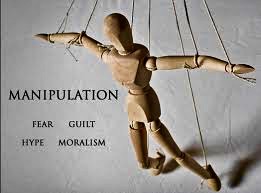
Davy v Davy 2019 BCSC 3128 reviewed inter alia the law relating to independent legal advice and situations where undue influence may arise.
Undue influence is an equitable doctrine to save people from being victimized by other people.
There are two classes of cases:
1) The first arises where the party seeking to set aside the transaction proves that the defendant engaged in improper conduct that dominated the will of the victim to the point of coercion;
2) The second class of cases arise where the defendant and the supposedly victim were in a relationship of dependency involving a potential for domination of the victim by the defendant. In these cases, if the transaction involved a gift or bequest, as opposed to a commercial transaction, undue influence is presumed in the burden lies in the defendant to show that the victim entered into the transaction as a result of his or her own full, free will and informed thought. In the case of a commercial transaction, there is a for the requirement that the plaintiff must also show that the contract in question worked unfairness by conferring undue disadvantage on the victim or undue advantage on the defendant..
The case law establishes that where there is the possibility of undue influence, effective independent legal advice requires that the lawyer must not confine himself or herself to confirming the clients and understanding of the legal mechanics and voluntarily assent to the transaction.
In the BC Court of Appeal decision of Cowper-Smith 2016 BCCA 200 at paragraph 52, the court held that these are cases in which an independent advisor should be satisfied that “ the gift is one that is right and proper, and all the circumstances of the case, and if he or she cannot so satisfy himself or herself then he or she should advise his or her client not to proceed.
The jurisprudence emphasizes that the lawyer’s duties to ensure that his or her client understands and freely assents to the transaction at hand, and sometimes this requires the lawyer to go well beyond an explanation of the narrow legalities to an assessment of the client’s understanding of the substance of the transaction and its implications.
The court found in the Davy decision that the legal advice provided to Mrs. Davy did not offer an assurance that the transfer of the home and in joint tenancy with her son was intended by Mrs. Davy as a result of her own full, free and informed thought.
The BC Court of Appeal decision in Cowper-Smith approved the following list of considerations for evaluating the significance of legal advice received in assessing the claim of undue influence:
1. Whether the party benefiting from the transaction is also present at the time, the advice is given, and were at the time the documents are executed;
2. whether though technically acting for the grantor, the lawyer was engaged by and took instructions from the person alleged to be exercising the influence;
3. in a situation where the proposed transaction involves the transfer of all or substantially all of a person’s assets, whether the lawyer was aware of that fact and discuss the financial implications with the grantor;
4. Whether the lawyer inquired as to whether the donor or discuss the proposed transaction with other family members who might otherwise have benefit of the transaction did not take place; and
5. whether the solicitor discussed other options, whereby she or he could achieve his or her object, and with less risk to him or her.
In the Davy case, the lawyer treated both the son and Mrs. Davy as her client, the proposed transaction involve the transfer of ownership of Mrs. Davies most significant asset. There was no discussion of the financial implications for Mrs. Davy if she and her son had a falling out; Mrs. Davy believed that her son needed to be on title, so as to qualify for a mortgage when that was not true; Mrs. Davy was unsophisticated and somewhat mentally compromised, the transaction was kept secret from others, and Mrs. Davy relied upon her son for financial advice.
Mrs. Davy believed the transfer was necessary in order to keep the home “safe” and several other factors that existed in a situation where David was in a position of domination over Mrs. Davy, who in turn was in a position of reliance upon her son David.
Due to their relationship of potential domination and reliance, there was a presumption of undue influence, and the son David was required to rebut that presumption of both resulting trust and undue influence, both of which he was unable to do.



